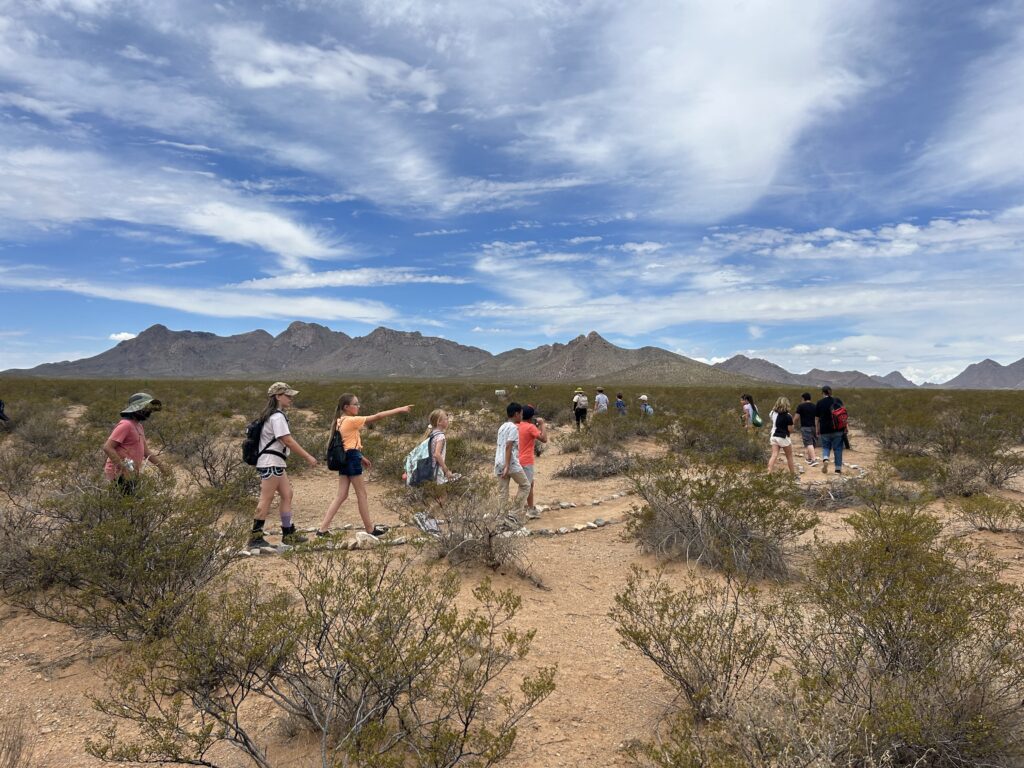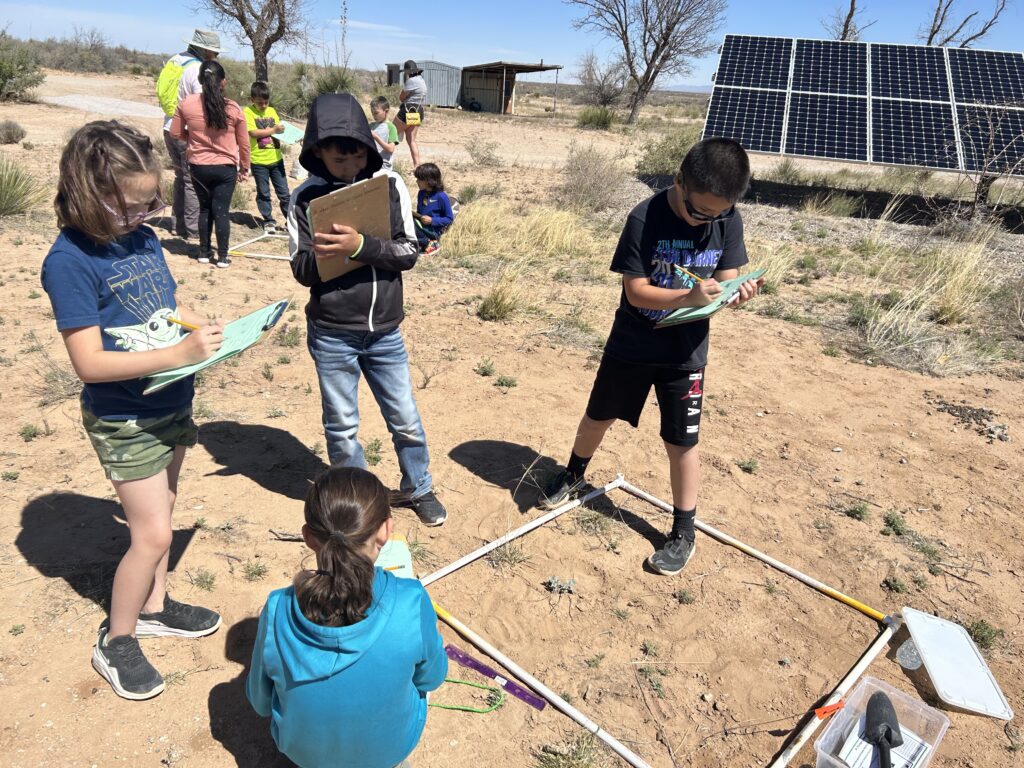Field Trips
Field trip programs are open to all schools, 2nd grade and up.
Field trips generally run from about 10:00-1:30 (elementary) or 2:30 (middle and high school)
We can accommodate groups of up to 100 students.
Cost: $5.00 per student or minimum $200.00. No cost for adults.
Please contact us to request a field trip!
Can’t get a bus? Check out our elementary Schoolyard Field Trips. These 2-hour outdoor programs investigate habitats in your schoolyard.

2nd / 3rd Grade - Dust in the Wind
Phenomenon: Scientists can measure and observe wind erosion in the desert.
Students will observe evidence of erosion on our hike and learn how scientists measure wind erosion. Then we will answer the questions, which season experiences the most wind erosion? And is there anything we can do to limit wind erosion?
Start with a hike at the Chihuahuan Desert Nature Park, then move to the Jornada Experimental Range for a picnic lunch and science activity stations.
$5 per student
All adults are free
100
Minimum group size 40
All day

4th / 5th Grade - Change on the Range
Phenomenon: Scientists at the Jornada Experimental Range are exploring technology for more economically and environmentally sustainable ranching.
For over one hundred years, scientists at the Jornada Experimental Range have been monitoring the impacts of various ranching practices on the Chihuahuan Desert. Recent projects have investigated the usefulness of Agrivoltaics (the dual use of land for agriculture and solar energy production) and high-tech tools that monitor cows and ranch resources. Students will investigate these tools and argue for or against their usefulness.
Start with a hike at the Chihuahuan Desert Nature Park, then move to the Jornada Experimental Range for a picnic lunch and science activity stations.
$5 per student
All adults are free
100
Minimum group size 40
All day

6th / 7th Grade - Restoring Connections
Phenomenon: Shrub encroachment and restoration affect biodiversity and the abiotic components of the desert ecosystem.
Students will explore how the ecosystem in the Chihuahuan Desert has changed from grassland to shrubland over time. They will participate in activity stations located around the 1.2-mile Desert Discovery Trail, where they will collect and analyze data, create a field guide, and make detailed observations about the landscape around them. Students will discover how the BLM’s Restore New Mexico initiative is restoring native grasslands by removing shrubs. They will then take on the role of a scientist and collect measurements on demonstration plots modeled after the project.
Chihuahuan Desert Nature Park
$5 per student
All adults are free
All day

